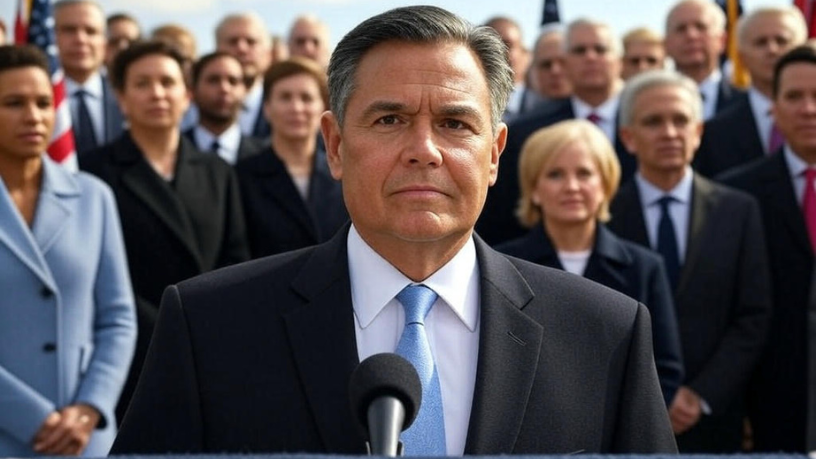On Wednesday, U.S. President Donald Trump will hold an inauguration ceremony in the Oval Office to welcome his new ambassador to China, former Senator David Perdue, a Republican from Georgia. Perdue’s appointment comes at a critical time in U.S.-China relations, marked by intense trade tensions. The arrival of the new ambassador symbolizes a continued effort to strengthen bilateral diplomacy, especially as both countries face challenges in international trade.
The position of ambassador to China is considered one of the most strategic diplomatic roles for the U.S., given the importance of economic and political relations with the Asian power. Perdue’s selection reflects the Trump administration’s desire to have someone who deeply understands economic and trade issues, as China is one of the U.S.’s primary trading partners, but also a major focus of tariff disputes and international political challenges.
Trade tensions between the U.S. and China have reached high levels in recent years, with both sides implementing tariffs on goods and services. This has created a volatile environment for businesses and consumers, with direct impacts on prices and the global supply chain. Now, Perdue’s appointment to the role comes with the challenge of navigating this complex relationship, seeking a balance between economic competition and diplomatic collaboration.
To address pending issues, Chinese negotiators are preparing for a crucial meeting with U.S. officials. U.S. Treasury Secretary Scott Bessent and U.S. Trade Representative Jamieson Greer will travel to Switzerland this weekend for a high-level meeting with their Chinese counterparts. The goal of this meeting is to initiate a direct and effective dialogue that could help ease trade tensions and find solutions to the ongoing trade war between the two powers.
The trade war has been one of the most challenging issues for the Trump administration, which, since the beginning of its term, has implemented heavy tariffs on Chinese imports. The trade policies adopted during his administration have had a significant impact on global trade, altering established trade agreements and provoking a series of reactions in international markets. The search for a diplomatic solution will be a central focus during the upcoming meeting between negotiators.
White House Press Secretary Karoline Leavitt announced that, on Wednesday afternoon, she will meet with reporters to discuss various issues related to the Trump administration, including details of the ceremony and ongoing trade negotiations. The White House will also provide additional information on Ambassador Perdue’s role in trade talks, a crucial step to understanding how the U.S. plans to advance in its discussions with China.
The situation unfolding in international trade is complex and full of challenges. Perdue’s appointment reflects the Trump administration’s intention to strengthen the U.S.’s position on the global stage, ensuring that its relationship with China is more strategic and aligned with national economic interests. However, many political analysts argue that, while Perdue’s appointment is a positive move, the real effectiveness of negotiations will depend on the ability of both countries to find common ground.
With the growing economic interdependence between the U.S. and China, it is crucial that the Trump administration manages bilateral relations with precision. The inauguration ceremony of the new ambassador, David Perdue, marks an important step in this process but also signals the beginning of a long-term diplomatic challenge. The future of trade negotiations between the two countries will depend on the approaches adopted in upcoming high-level meetings and how the U.S. responds to China’s demands in the context of global economic tensions.
Author: Clodayre Daine









